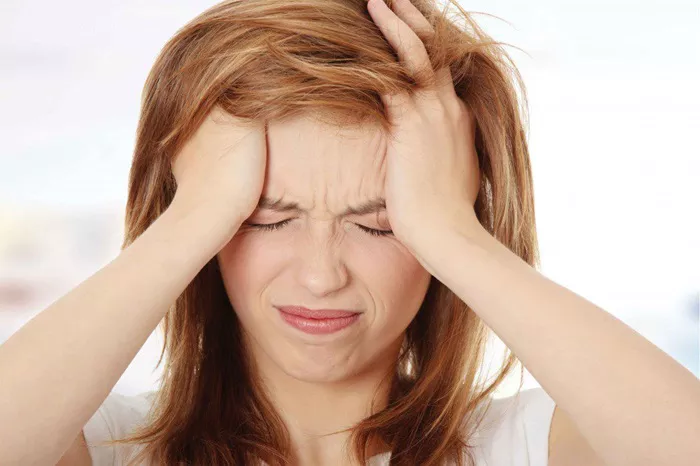Hair loss is a concern for many people, and stress is a common trigger that can exacerbate this condition. Stress-related hair loss can be alarming, but understanding the causes and finding the right solutions can help you manage and reverse this condition effectively.
What is Stress-Related Hair Loss?
Stress-related hair loss, also known as telogen effluvium, occurs when significant stress pushes a large number of hair follicles into a resting phase. This leads to shedding, often resulting in noticeable thinning or bald patches. Unlike other forms of hair loss, stress-induced hair loss is typically temporary, and with the right approach, hair can regrow.
How Does Stress Affect Hair?
Stress triggers a chain reaction in the body, releasing hormones like cortisol. High levels of cortisol disrupt the hair growth cycle, pushing hair follicles into the telogen (resting) phase prematurely. When this phase ends, hair falls out, leading to noticeable thinning.
Identifying the Signs of Stress-Related Hair Loss
It’s essential to differentiate stress-related hair loss from other types of hair loss. Signs include sudden hair shedding, hair coming out in clumps, and thinning hair all over the scalp rather than in specific areas.
Effective Treatments for Hair Loss Due to Stress
1. Stress Management Techniques
The first step in treating hair loss due to stress is to manage the stress itself. Here are some effective stress management techniques:
Mindfulness and Meditation: Practicing mindfulness and meditation can reduce stress and promote a sense of calm.
Exercise: Regular physical activity helps lower cortisol levels, reducing stress.
Adequate Sleep: Ensuring you get enough sleep is crucial for managing stress.
Balanced Diet: A diet rich in vitamins and minerals supports hair health and reduces stress.
2. Topical Treatments
Topical treatments can be effective in stimulating hair growth and reversing hair loss:
Minoxidil: Minoxidil is an over-the-counter topical treatment that stimulates hair growth by increasing blood flow to the scalp.
Essential Oils: Oils like peppermint and rosemary have been shown to promote hair growth when massaged into the scalp regularly.
Corticosteroid Creams: For more severe cases, corticosteroid creams may be prescribed to reduce inflammation and encourage hair growth.
SEE ALSO: What to Do for Hair Loss Due to Medication?
3. Nutritional Supplements
Nutritional deficiencies can exacerbate stress-related hair loss. Incorporating the right supplements into your routine can support hair regrowth:
Biotin: Biotin is a B vitamin essential for hair health. Supplementing with biotin can strengthen hair and promote growth.
Vitamin D: Low levels of vitamin D are linked to hair loss. Ensuring adequate intake through diet or supplements can be beneficial.
Iron: Iron deficiency is a common cause of hair loss, especially in women. Iron supplements can help prevent hair loss due to iron deficiency.
Omega-3 Fatty Acids: Omega-3 fatty acids promote scalp health and reduce inflammation, supporting healthy hair growth.
4. Hair Care Practices
Changing your hair care routine can also help reduce hair loss due to stress:
Gentle Hair Care: Avoid harsh treatments like excessive heat styling, chemical treatments, and tight hairstyles that can exacerbate hair loss.
Scalp Massage: Regular scalp massages can increase blood flow to the hair follicles, promoting growth.
Mild Shampoos and Conditioners: Use products free from sulfates and parabens to avoid irritating the scalp.
5. Professional Treatments
For more severe cases of stress-related hair loss, professional treatments may be necessary:
Platelet-Rich Plasma (PRP) Therapy: PRP therapy involves injecting your own plasma into the scalp to stimulate hair growth.
Low-Level Laser Therapy (LLLT): LLLT uses light therapy to stimulate hair follicles and promote growth.
Microneedling: Microneedling creates tiny punctures in the scalp, encouraging the body’s natural healing process and promoting hair growth.
Lifestyle Changes to Prevent Future Hair Loss
Preventing future hair loss involves making long-term lifestyle changes:
Healthy Diet
A diet rich in protein, vitamins, and minerals supports hair health. Include foods like eggs, nuts, seeds, leafy greens, and fish in your diet.
Regular Exercise
Exercise helps regulate hormones and reduce stress, which can prevent hair loss. Aim for at least 30 minutes of moderate exercise most days of the week.
Mind-Body Practices
Incorporate mind-body practices like yoga, tai chi, or deep breathing exercises into your routine to help manage stress levels.
When to See a Doctor
If your hair loss is severe or doesn’t improve with lifestyle changes and treatments, it’s essential to see a healthcare professional. They can rule out other causes of hair loss, such as hormonal imbalances or medical conditions, and recommend appropriate treatments.
Conclusion
Hair loss due to stress can be distressing, but with the right approach, it is possible to manage and even reverse the condition. By addressing the underlying stress, using appropriate treatments, and making lifestyle changes, you can support hair regrowth and maintain healthy hair.
Stress management is key. By reducing stress levels, you not only improve your overall well-being but also protect your hair from further damage.


